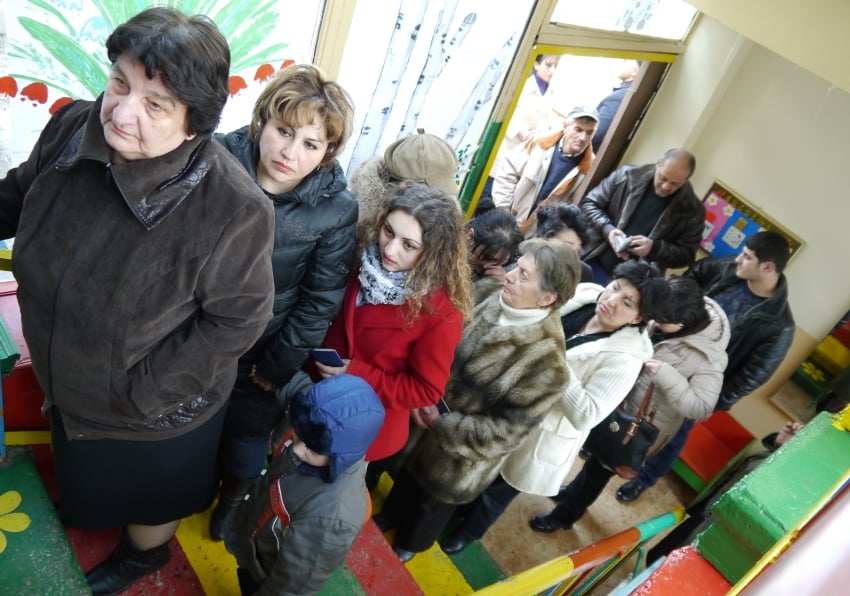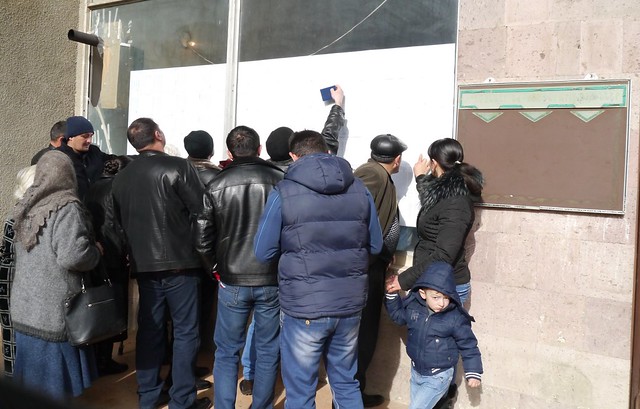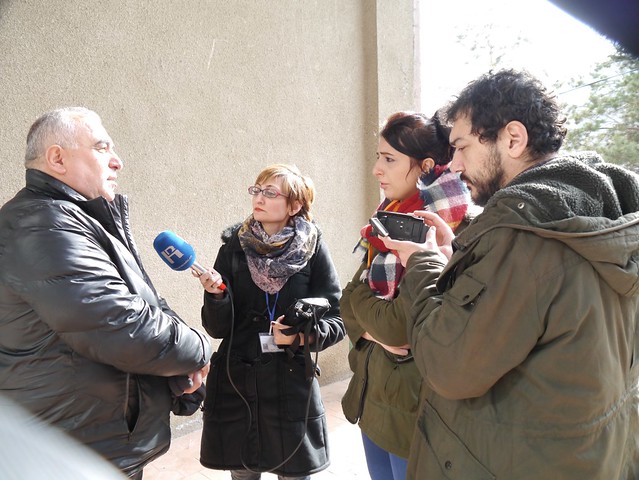
Last Sunday, on February 14, elections were held in three of Armenia’s marzer [provinces]. It’s possible, many didn’t know and didn’t hear about this. The newsfeed of those days surrounded mainly Armenian President Serzh Sargsyan’s speech and the coalition, while Tyarndarach [also known as Trndez] and Valentine’s Day provided the emotional backdrop.
Meanwhile, the February 14 elections held special significance and intrigue. They were the first elections organized in Armenia’s three enlarged communities (Tatev, Dilijan, Tumanyan), in which by participating, the unified villages renounced their independent status and legitimized the new authorities of the united communities.
For the media, which seeks intrigues and sometimes creates them, this was a worthy topic to study, analyze, and monitor developments. Especially since the residents of these communities participated in the already held elections with palpable active involvement (in Syunik, 61.4%; in Lori, 55.5%; and in Tavush, 56.3%). Lines to vote had even formed at the polling stations.
It’s interesting that the May 17, 2015 referendum on enlargement held in these communities had revealed different sentiments: skepticism and indifference toward the changes, and low participation. Moreover, some villages, such as Haghartsin, Gosh, and Teghut (Tavush marz), had generally voted against enlargement.

You had to go to the marzer, be on the ground, to understand and find out what had changed during these months. But few Yerevan-based news outlets are ready to allocate time and resources to get to a remote region or village. And this is a question of not only capacities, but also editorial decisions.
The marz and village are not securing their place in Armenia’s news agenda. They appear from time to time when, say, some official or another visits a village, wolves attack sheep, hail destroys crops, or an alarm is raised on an environmental issue — and then disappear again.
Residents of Hovk, a village 34 km from Dilijan, nestled in the hillside with no road, reacted with surprise to the group of journalists that arrived there: “Our village doesn’t exist on the map; how did you find it?”
Armenia is a small country, and Armenia’s media further diminishes its already small proportions, confining itself mainly to Yerevan. One gets the impressions that people don’t live outside of Yerevan, don’t vote and don’t decide. In short, that nothing happens.

There’s a simple rule of journalism: if you want a story to interest your audience, you first have to take an interest. Try to find new, fresh stories over which you can get excited, investigate, and without deceiving yourself, say that you carried out journalistic work. I assure you, that which is seen by eye-witnesses and new opinions received first hand are a huge inspiration. Any village and family is the start of a large coiled ball of information. This ‘ball’ of joys, losses, and issues is an opportunity for journalists to work not only well and fast, but also with pleasure.
It can be said that with the February 14 elections, the enlargement of the communities just now became a reality. Though the process had begun last year, until last Sunday the unified villages continued to live as before — with their separate lives, budgets, and village mayors.
In addition to these three pilot communities, enlargement programs are going to begin in Armenia’s 11 other communities. One way or another, there will be a need to delve deeper into the topic, understand it, and in some cases, present it with simple human stories. In short, there will be the need for journalists.
Narine Safaryan

Add new comment
Comments by Media.am readers become public after moderation. We urge our readers not to leave anonymous comments. It’s always nice to know with whom one is speaking.
We do not publish comments that contain profanities, non-normative lexicon, personal attacks or threats. We do not publish comments that spread hate.